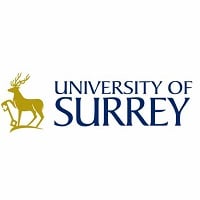Biosciences and Medicine
Position Details (PhD Program)
The Biosciences and Medicine offered at the University of Surrey will give you the chance to contribute to a fast-paced area of research that’s becoming increasingly relevant to modern society.
On the Biosciences and Medicine Biosciences and Medicine programme you can enhance your laboratory and analytical skills, acquire a general awareness of contemporary biomedical research and hone your ability to solve academic and practical problems.
Career opportunities
Work alongside Surrey’s world-leading researchers who are published in top academic journals, including Nature and The Lancet and regularly give expert media commentaries. Depending on your research project, you’ll most likely complete extensive laboratory work to generate data that will underpin your final thesis. Some research areas will be primarily or entirely related to the analysis of existing scientific or clinical data sets; however, all projects will require some statistical analysis. Some projects will be entirely conducted at the University of Surrey University of Surrey , whereas others will involve collaboration with UK-based or international institutions. Your final assessment will be based on the presentation of your research in a written thesis, which will be discussed in a viva examination with at least two examiners. You have the option of preparing your thesis as a monograph (one large volume in chapter form) or in publication format (including chapters written for publication), subject to the approval of your supervisors. You’ll have a confirmation assessment to formally review your project. If you’re a full-time student, this will take place around 12-15 months into your studies or 24-30 months if you’re studying part-time. You’ll be required to submit a written report and successfully complete an oral examination.
Research themes
- Bacteriology including leprosy, meningococcus, pathogenic E.coli, tuberculosis, and various foodborne pathogens
- Cardiovascular sciences including blood coagulation, cardiac cell signalling pathways, gene therapy, tissue engineering, and the role of cardiac fibroblasts
- Chronobiology including central and peripheral clock mechanisms, chrononutrition, molecular mechanisms underlying synchronisation of rhythms by light, melatonin, and food
- Clinical medicine including cancer, critical care, diabetes, laparoscopic surgery, primary care and clinical informatics
- Exercise sciences including cognitive decline, dementia, DNA damage and repair and osteoporosis
- Immunology including B cell development and function, macrophage function, peroxisomal function in the immune system and T cell function in ageing



 University of Surrey
University of Surrey